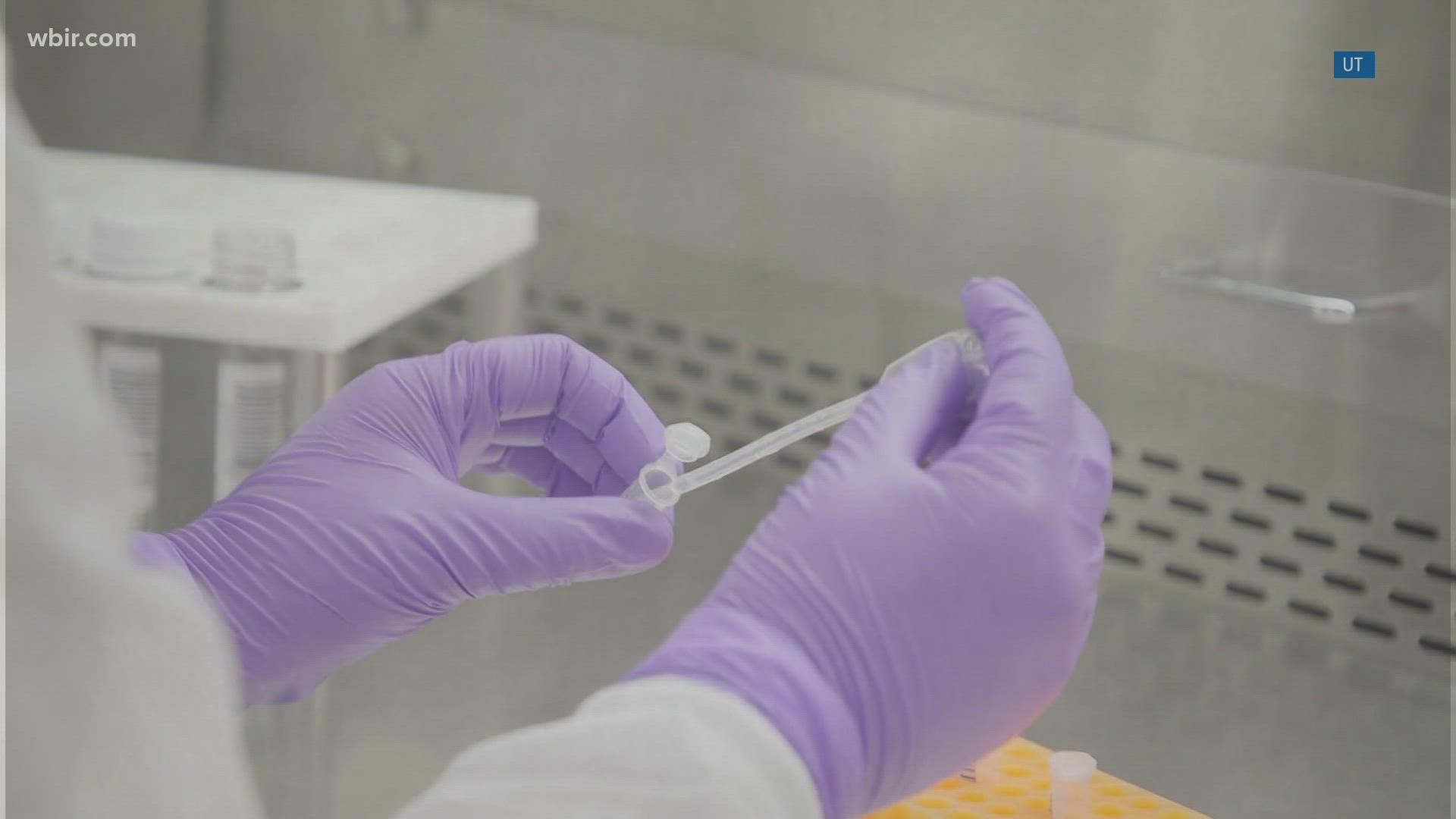KNOXVILLE, Tenn. — As Tennessee prepares for the arrival of the omicron variant of COVID-19, it's analyzing less than 2 percent of positive tests for the new variant — significantly less than some other states.
According to the CDC, Vermont leads the nation with 22 percent of its positive COVID-19 samples broken down into genetic sequences to detect their specific variants. Other southern states, such as Alabama, Georgia and South Carolina, join Tennessee in hovering around the 2 percent range.
The standard COVID-19 test detects whether a patient is positive for the virus, but isn't advanced enough to tell which variant. For that, the sample must be analyzed by its genetic building blocks in labs like the ones led by Vanderbilt University Medical Center's Dr. Jonathan Schmitz.
"This is something that needs to be done so we're not in the dark on the way this pandemic is evolving," Schmitz said.
From test to sequencing to analysis to detection of a new variant can take days, he said, and it won't change the treatment for people who test positive.
"Whether or not you have Delta or Omicron or the original virus from 2 years ago, that doesn't impact necessarily the sort of care you're going to receive," he said.
But it can help the state plan for where more cases and hospitalization may pop up.
"On a population level, on a level of figuring out where this epidemic is going, where we need to divert resources to where we need to plan in the future, sequencing is quite important," Schmitz said.
He says most patients won't ever know which variant they have, even if it is Omicron.

